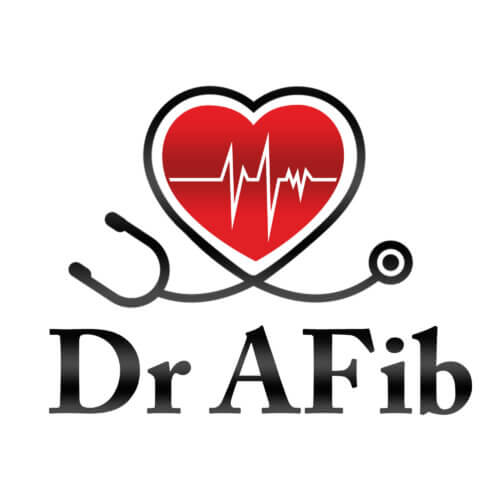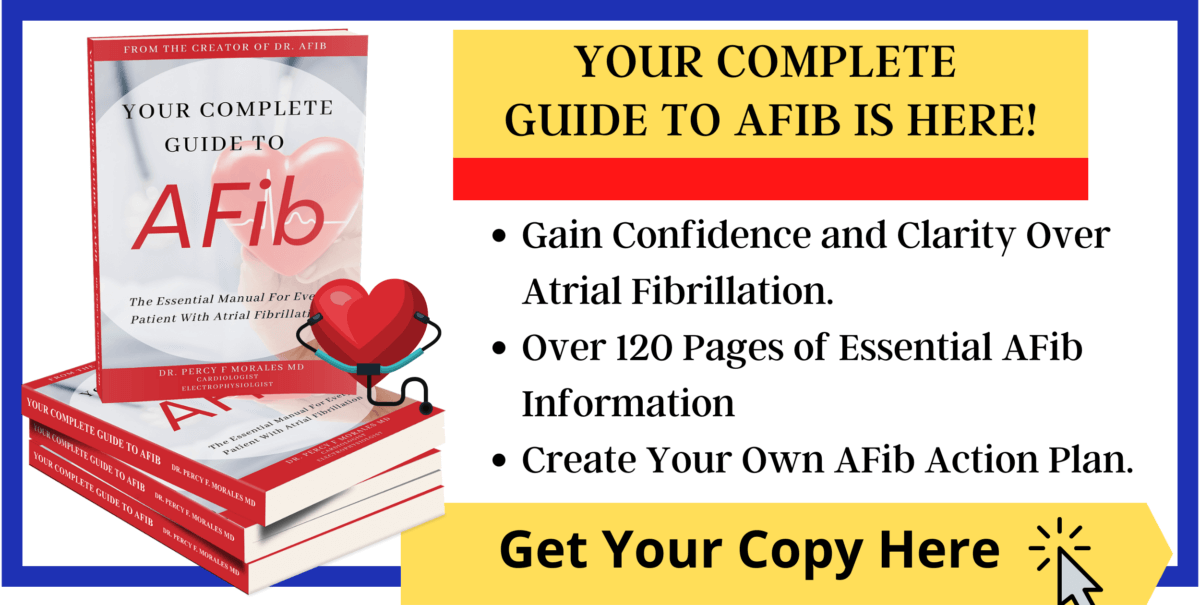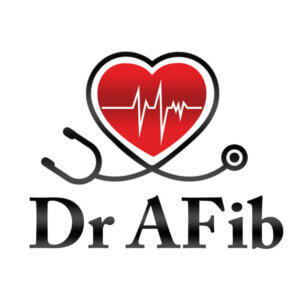Learn more about metoprolol for AFib. Did you know that beta blockers are the most commonly prescribed medications for treating atrial fibrillation?
As a popular cardiac medication group capable of slowing down fast and irregular heart rhythms, most newly diagnosed AFib patients will be put on beta blockers as part of their treatment plan. But are these medications always the best option for every patient?
Looking to share some important information about these commonly used medications, this article covers everything you need to know about beta blockers for AFib. Covering essential topics like the mechanism of action, side effects, and potential alternative medication options, this is your go-to resource if you or someone you love has recently started to take beta blockers for their atrial fibrillation.
What are Beta Blockers?
Beta blockers are a class of cardiac medications used to treat a wide variety of heart conditions. Most commonly taken as an oral medication, beta blockers interact with specific hormones, neurotransmitters, and receptors throughout the body to reduce a person’s blood pressure and better manage fast and irregular heart rhythms like atrial fibrillation.
How Beta Blockers Work
In order to support improved cardiac health, beta blockers bind with adrenergic receptors that are located throughout the body. These receptors (which are also sometimes referred to as adrenoceptors) are normally used by the hormones epinephrine and norepinephrine and are categorized into three different types:
-
Beta-1 (B1) — Found primarily in the heart and kidneys, beta-1 receptors help to increase heart rate and increase heart pumping force when activated.
-
Beta-2 (B2) — Located in smooth muscle cells throughout the body, activated beta-2 receptors cause respiratory and blood vessel relaxation and increased heart rates.
-
Beta-3 (B3) — Found primarily in fat cells and in the urinary bladder, beta-3 receptors impact fat breakdown speeds and cause relaxation of the bladder when activated.
When a patient takes a beta blocker medication, it binds to adrenoreceptors, effectively blocking the hormone binding. As a result, standard epinephrine binding is blocked (creating an anti-adrenaline effect), and the patient will notice changes in their underlying cardiac symptoms in the form of a slower heart rate or lower blood pressure.
Your Complete Guide To AFib: The Essential Manual For Every Patient With Atrial Fibrillation
$15.95 (as of May 30, 2025 13:51 GMT -06:00 – More infoProduct prices and availability are accurate as of the date/time indicated and are subject to change. Any price and availability information displayed on [relevant Amazon Site(s), as applicable] at the time of purchase will apply to the purchase of this product.)
What Cardiac Conditions are Treated with Beta Blockers?
Because of their ability to impact a person’s heart rate and blood pressure, beta blockers are used for a wide range of cardiac conditions. Some of the most common heart conditions treated with beta blockers include:
-
Angina or chest pain
-
Hypertension (high blood pressure)
-
Congestive heart failure
-
Coronary artery disease
-
Post-heart attack recovery
-
Atrial fibrillation
-
Other rapid arrhythmias such as atrial flutter or supra ventricular tachycardia.
The Most Common Beta Blockers used for Atrial Fibrillation
As a broad and diverse category of medication, there are multiple different types of beta blockers that you may be prescribed to manage your AFib.
Depending on your past medical history, drug tolerances, and the advice of your primary care provider, some of the most commonly prescribed beta blockers for atrial fibrillation that you may be recommended include:
Cardioselective beta blockers (that bind with only Beta-1 receptors):
-
Metoprolol (Lopressor) (Metoprolol is the most commonly prescribed beta-blocker)
-
Atenolol (Tenormin)
-
Bisoprolol (Cardicor or Congescor)
-
Acebutolol (Sectral)
Nonselective beta blockers (that impact all types of beta blockers):
-
Nadolol (Corgard)
-
Propranolol (Inderal)
-
Labetalol (Normodyne)
-
Carvedilol (Coreg)
Beta Blocker Side Effects
Like any other medication, taking beta blockers to manage your AFib symptoms is not without risk of side effects. While in most cases, beta blockers are a relatively safe and low-risk medication, some of the most common mild side effects of taking beta blockers can include:
-
Fatigue and dizziness — Because beta blockers help to slow your heart rate, they can cause feelings of dizziness and fatigue. In severe cases, low blood pressure and low heart rate can cause you to lose consciousness, so be sure to monitor your symptoms if you begin to feel light-headed while taking this medication.
-
Gastrointestinal discomfort — In some cases, beta blockers can cause nausea, diarrhea, and vomiting from their interaction with receptors in the gastrointestinal tract. These symptoms can be relieved by avoiding taking beta blockers on an empty stomach.
-
Changes to your circulation — When your heart rate slows down, your blood is moved at a slower pace around in the body. In some cases, this can cause tingling, numbness, or a cold feeling in their hands and feet.
-
Sexual dysfunction — It is possible for beta blockers to cause erectile dysfunction due to their impact on your blood pressure. If you experience this while taking beta blockers, speak to your primary care provider for additional options.
-
Weight gain — In some cases, it is possible for people to gain weight while taking beta blockers. Research is still being conducted to better understand the reasoning for this side effect.
In very rare cases, it is possible for a person to develop more severe side effects from taking beta blockers, including:
-
Difficulty breathing or shortness of breath
-
High blood sugar
-
Jaundice
-
Depression
-
Insomnia and nightmares
If you or someone you love have been displaying any of the above symptoms while taking beta blockers, make sure to reach out to your primary care provider for additional support and advice.
Alternative Medications to Beta Blockers
Unfortunately, beta blockers are not the best fit for every patient with AFib. In some cases, potential side effects or interactions with other prescription medications may prevent someone from taking beta blockers safely. If this is the case for you, there are other options available, including:
-
Calcium channel blockers — As another form of blood pressure medication, calcium channel blockers like diltiazem and verapamil can help to reduce the heart rate in people with AFib.
-
Digoxin — As a less commonly used option, digoxin (which is a powerful cardiac medication that requires lots of monitoring) can be used to treat atrial fibrillation.
-
Anti-arrhythmic Medications: Stronger AFib medications, such as the anti-arrhythmic medications flecainide, propafenone, sotalol, multaq, or amiodarone can be used as an alternative to beta-blockers in some cases.
The Guide To Reverse Atrial Fibrillation Naturally
If you are interested in natural treatment options for atrial fibrillation and are highly motivated in improving your symptoms naturally, to reduce your need for medications or even procedures, then take a look at my one-of-a-kind, online educational program, Take Control Over AFib.
Lifestyle modifications and reducing inflammation are essential components of the long-term management of atrial fibrillation. Addressing the source cause of atrial fibrillation can lead to a significant benefit for most AFib patients. Targeted lifestyle modifications can reduce your symptoms, reduce your reliance on medications or procedures, and even improve the long-term success rate of procedures for AFib. However, most patients are not given instructions or tips on how to accomplish these essential lifestyle modifications in an AFib targeted style.
This is exactly why I created the Take Control Over AFib Program, to give people a step-by-step plan to improve and potentially reverse atrial fibrillation naturally.
Thinking about lifestyle modifications is easy, but putting in place a system to keep you committed to achieve real results takes time and dedication, and with my step-by-step plan, we can achieve powerful and long-lasting results together.
Putting It All Together
Overall, beta blockers are a relatively safe and nearly universal option for the treatment of arrhythmias like AFib.
Because they are easy to take and effective for the long-term management of rapid heart rates, it is very common for newly diagnosed AFib patients to be prescribed a beta blocker as part of their treatment plan.
However just because a medication is commonly used, doesn’t mean that it is the best fit for your unique needs. Educating yourself about the side effects and potential risks of taking beta blockers is essential for ensuring that you receive the best possible care — and I hope this article has acted as a helpful guide for learning everything you need to know!
The Best Atrial Fibrillation Book
Your Complete Guide To AFib: The Essential Manual For Every Patient With Atrial Fibrillation
$15.95 (as of May 30, 2025 13:51 GMT -06:00 - More infoProduct prices and availability are accurate as of the date/time indicated and are subject to change. Any price and availability information displayed on [relevant Amazon Site(s), as applicable] at the time of purchase will apply to the purchase of this product.) The A to Z guide on everything you need to know about atrial fibrillation. Written by AFib expert Dr. Percy Morales MD. Over 120 pages of essential information on medications, procedures, and lifestyles modifications for AFib. Easy to read for every patient.
Shop AFib Products on Amazon
KardiaMobile 6-Lead Personal EKG Monitor – Six Views of The Heart – Detects AFib and Irregular Arrhythmias – Instant Results in 30 Seconds – Works with Most Smartphones - FSA/HSA Eligible
13% Off
KardiaMobile 1-Lead Personal EKG Monitor – Record EKGs at Home – Detects AFib and Irregular Arrhythmias – Instant Results in 30 Seconds – Easy to Use – Works with Most Smartphones - FSA/HSA Eligible
$79.00 (as of May 30, 2025 13:51 GMT -06:00 - More infoProduct prices and availability are accurate as of the date/time indicated and are subject to change. Any price and availability information displayed on [relevant Amazon Site(s), as applicable] at the time of purchase will apply to the purchase of this product.)
Apple Watch Series 9 [GPS 41mm] Smartwatch with Storm Blue Aluminum Case with Silver Sport Band M/L. Fitness Tracker, Blood Oxygen & ECG Apps, Always-On Retina Display
(as of May 30, 2025 07:03 GMT -06:00 - More infoProduct prices and availability are accurate as of the date/time indicated and are subject to change. Any price and availability information displayed on [relevant Amazon Site(s), as applicable] at the time of purchase will apply to the purchase of this product.)
Fitbit Sense 2 Advanced Health and Fitness Smartwatch with Tools to Manage Stress and Sleep, ECG App, SpO2, 24/7 Heart Rate and GPS, Shadow Grey/Graphite, One Size (S & L Bands Included)

OMRON 2-in-1 Upper Arm Blood Pressure Monitor & 1-Lead EKG Monitor - Clinically Validated Blood Pressure Arm Cuff & Machine - Use OMRON Connect App
17% Off
Samsung Galaxy Watch 6 44mm Bluetooth Smartwatch, Fitness Tracker, Personalized HR Zones, Advanced Sleep Coaching, Heart Monitor, BIA Sensor, Health Wellness Insights, Big Screen, US Version, Graphite
52% Off $329.99 (as of May 30, 2025 19:16 GMT -06:00 - More infoProduct prices and availability are accurate as of the date/time indicated and are subject to change. Any price and availability information displayed on [relevant Amazon Site(s), as applicable] at the time of purchase will apply to the purchase of this product.)
Natural Rhythm Triple Calm Magnesium 150 mg - 120 Capsules – Magnesium Complex Compound Supplement with Magnesium Glycinate, Malate, and Taurate. Calming Blend for Promoting Rest and Relaxation.
$20.77 ($0.17 / Count) (as of May 30, 2025 15:34 GMT -06:00 - More infoProduct prices and availability are accurate as of the date/time indicated and are subject to change. Any price and availability information displayed on [relevant Amazon Site(s), as applicable] at the time of purchase will apply to the purchase of this product.)
Pure Encapsulations Magnesium (Glycinate) - Supplement to Support Stress Relief, Sleep, Heart Health, Nerves, Muscles, and Metabolism* - with Magnesium Glycinate - 180 Capsules
$44.60 ($0.25 / Count) (as of May 30, 2025 07:03 GMT -06:00 - More infoProduct prices and availability are accurate as of the date/time indicated and are subject to change. Any price and availability information displayed on [relevant Amazon Site(s), as applicable] at the time of purchase will apply to the purchase of this product.)
















![Apple Watch Series 9 [GPS 41mm] Smartwatch with Storm Blue Aluminum Case with Silver Sport Band M/L. Fitness Tracker, Blood Oxygen & ECG Apps, Always-On Retina Display #1](https://m.media-amazon.com/images/I/311xwtp4mFL._SL100_.jpg)
![Apple Watch Series 9 [GPS 41mm] Smartwatch with Storm Blue Aluminum Case with Silver Sport Band M/L. Fitness Tracker, Blood Oxygen & ECG Apps, Always-On Retina Display #2](https://m.media-amazon.com/images/I/41j+8AaUGsL._SL100_.jpg)
![Apple Watch Series 9 [GPS 41mm] Smartwatch with Storm Blue Aluminum Case with Silver Sport Band M/L. Fitness Tracker, Blood Oxygen & ECG Apps, Always-On Retina Display #3](https://m.media-amazon.com/images/I/41jIyxZitnL._SL100_.jpg)
![Apple Watch Series 9 [GPS 41mm] Smartwatch with Storm Blue Aluminum Case with Silver Sport Band M/L. Fitness Tracker, Blood Oxygen & ECG Apps, Always-On Retina Display #4](https://m.media-amazon.com/images/I/41IpNJERjCL._SL100_.jpg)
![Apple Watch Series 9 [GPS 41mm] Smartwatch with Storm Blue Aluminum Case with Silver Sport Band M/L. Fitness Tracker, Blood Oxygen & ECG Apps, Always-On Retina Display #5](https://m.media-amazon.com/images/I/31o17yhfYpL._SL100_.jpg)






































